Our Production Process
We consciously source materials for a more sustainable design aesthetic. We encompass their natural beauty as well as their environmental contribution during the lifecycle of our products.

STRAW
A genuine Pachacuti Panama hat is hand-woven from the straw called paja toquilla locally in Ecuador. The straw is harvested sustainably from the leaves of Carludovica palmata. The plant is from the Cyclanthaceae botanical family and grows to approximately three to four metres high.
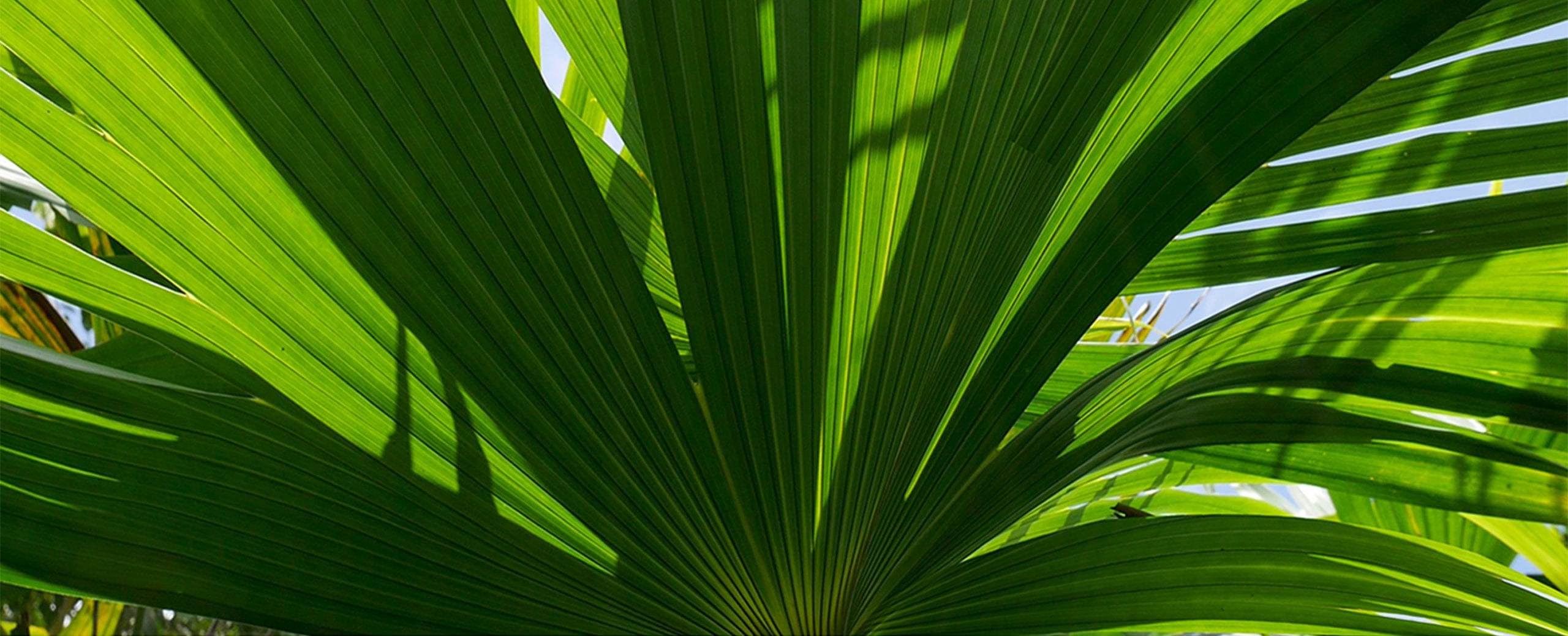
OUR PANAMA HAT STRAW IS ORGANICALLY GROWN ON A COMMUNITY-OWNED PLANTATION
The plantation sits within a 5,600 hectare protected bio-reserve in the tropical cloud forest close to the Ecuadorian coast. The community cultivates it in a way that encourages the biodiversity of native plants and animals.
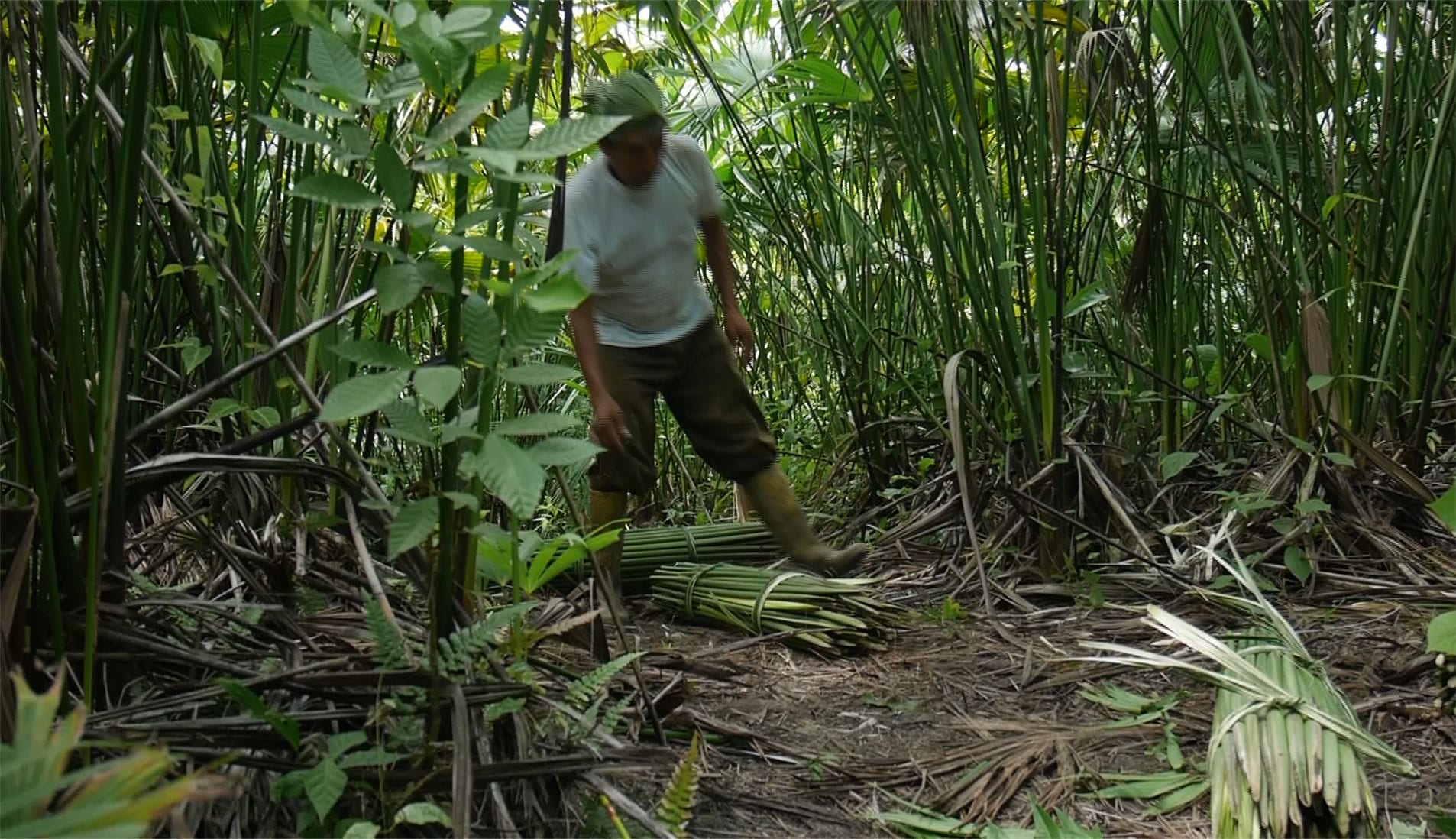
The straw we use in our Panama hats works with nature not against it
The Associación de Amor y Paz – the Love and Peace Association – carries out harvesting on our behalf. The plants they harvest today were sown more than 80 years ago. Cultivated plots called toquillales are located at the edge of the common land, about 17km from the community settlement. Parents pass ownership down to their children, linking individual harvesters to plots, but the local community is the authentic owner.
It takes the plant about three years to establish itself. From then, harvesters can crop it monthly, at a rate of around 60%. (They cut only 6-8 shoots of the 10-12 on the plant at any one time.) Harvesters bundle the cut shoots together into ochos, each comprising 112 shoots. Each harvester writes his name on a leaf from one of his ochos so he can recognise his own harvest in the truck.
They leave old leaves on the forest floor as mulch. Alternatively, locals use them for roofing or baskets. (In the past, Shuar and Cofán fishermen made fish traps from Carludovica palmata.)
Old leaves are left on the forest floor as mulch or are used for roofing or baskets. (In the past, Shuar and Cofán fishermen made fish traps from Carludovica Palmata.)
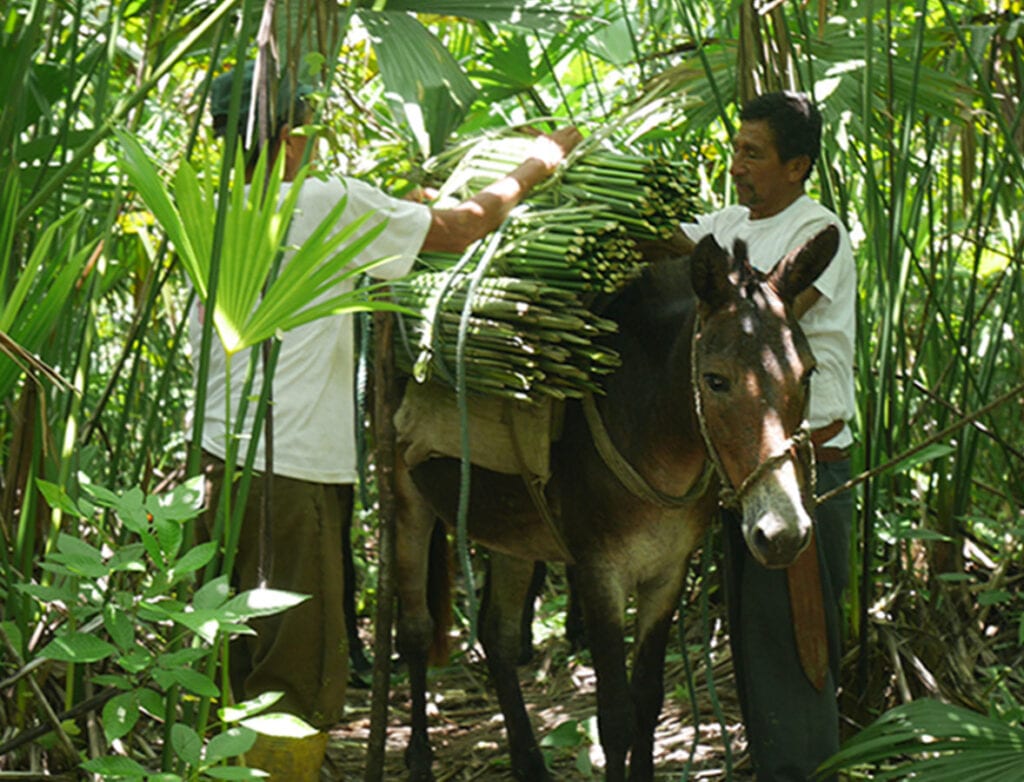
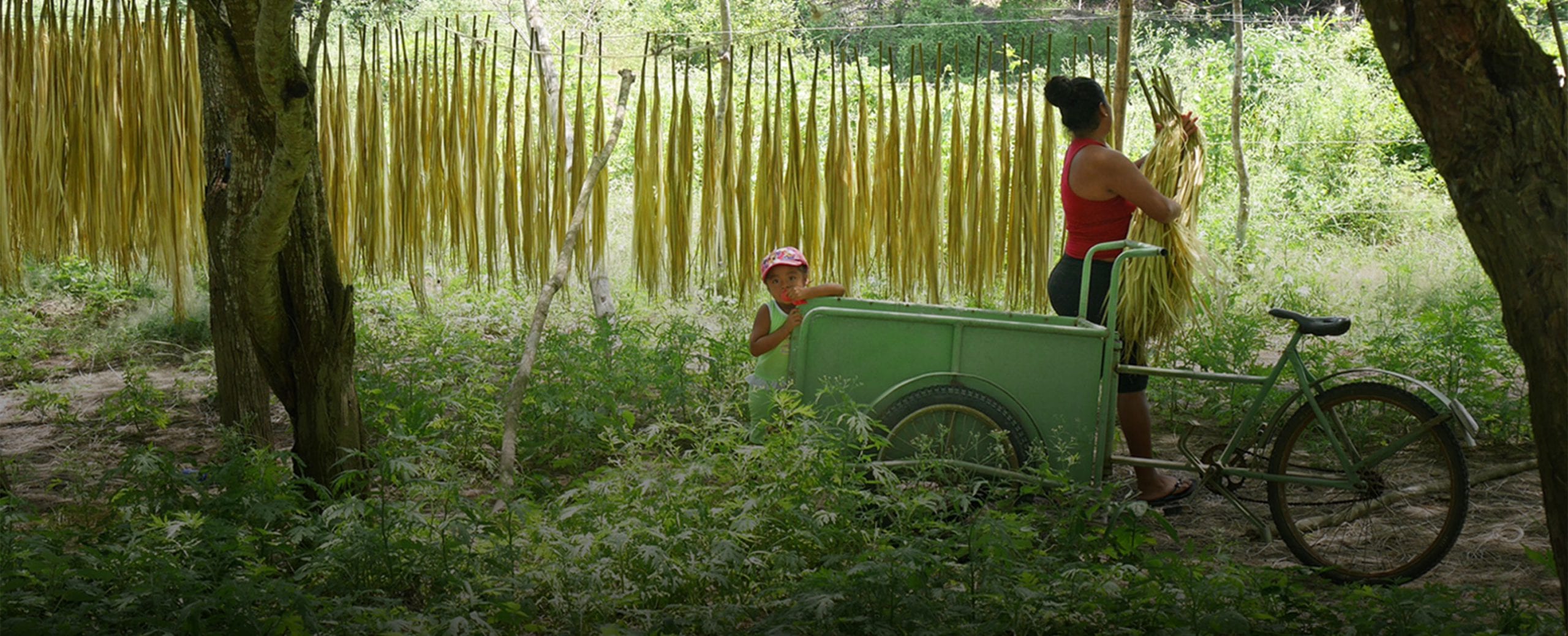
THE PLANT CAN BE CROPPED MONTHLY FOR OVER 100 YEARS.
IT MUST BE ONE OF THE MOST SUSTAINABLE FIBRES IMAGINABLE.
CULTIVATION AND BIODIVERSITY
There is an environmental benefit in the cultivation of Carludovica palmata. This perennial plant grows in organic conditions, prevents erosion and contributes significantly to carbon sequestration. Cloud forests play a significant role in the carbon cycle because they are important sinks for atmospheric carbon. Carludovica palmata plants can be cultivated without destroying these primary forests.
Ecuador is one of the most biodiverse countries in the world. It contains 6.1% of all species reported worldwide, although comprising only 0.2% of the landmass. The community has been working hard to protect the land and to increase sustainability and biodiversity. Locals now see more birds and animals in the area, such as toucans, armadillos and monkeys, as well as the odd tarantula!
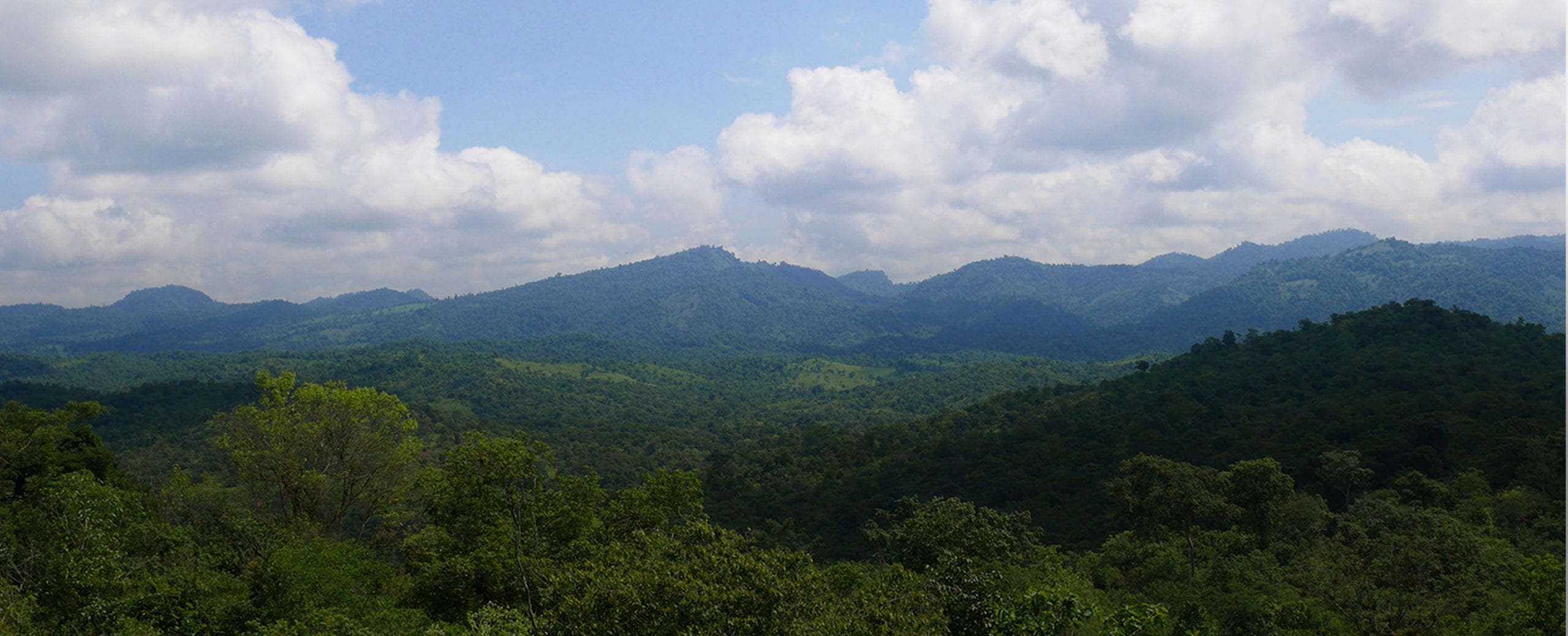
WE ARE PRODUCING
OXYGEN FOR THE WORLD
MANAGING OUR ENVIRONMENTAL IMPACT
Pachacuti has identified both the direct and indirect environmental aspects of our business activities by:
- Eco-mapping the premises of our producer groups
- Analysing raw material flows
- Calculating energy and water use (per hat)
- Calculating our CO2 emissions
